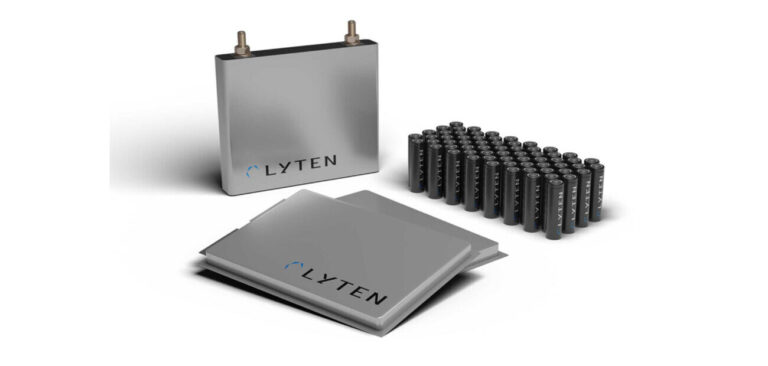Lyten, an advanced materials company based in California, has introduced its LytCell EV lithium-sulfur (Li-S) battery platform.
The batteries are optimized specifically for the electric vehicle (EV) market and are said to deliver three times the gravimetric energy density of conventional lithium-ion (Li-ion) chemistries. Lyten says it has been working closely with the US government for several years to test and improve its cell capabilities in defense-related applications and is now ready to introduce its battery technology platform to the electric vehicle market.
The 3D Graphene-based Li-S architecture is stated to have the potential to reach a gravimetric energy density of 900Wh/kg, greater than both conventional lithium-ion and solid-state batteries. Lyten says a sulfur caging process is used in the batteries to unlock the performance potential of sulfur by arresting the ‘poly-sulfide shuttle’, a cycle-life compromising factor that has up to now prevented practical Li-S use in battery electric vehicles. Under DOD (Department of Defense) test protocols, a LytCell prototype design is claimed to have demonstrated greater than 1,400 cycles.
“We have begun a generational transformation from internal combustion engines to BEVs. We’re confident that Lyten’s breakthrough battery platform will accelerate the mass consumer adoption of electric vehicle ownership due to the performance, range and safety improvements of our LytCell EV batteries,” said Dan Cook, CEO and a co-Founder of Lyten. “By also delivering the most environmentally responsible battery with a USMCA-compliant supply chain, we believe Lyten will enable auto makers to more confidently execute their announced electrification roadmaps.”
The company notes that key to its battery breakthrough was the development of its 3D Graphene, a three-dimensional graphene material platform that apparently took the company years to refine. It states this material can be engineered and tuned at a molecular level to specific battery application requirements and is key to achieving high energy density. Lyten expects full production and market availability of its batteries for ’25-’26 MY vehicles.


